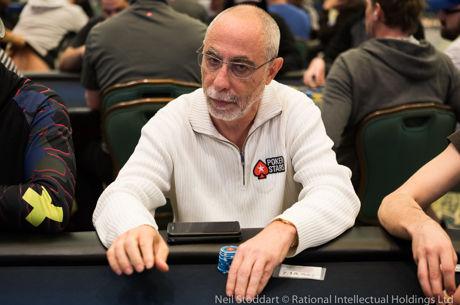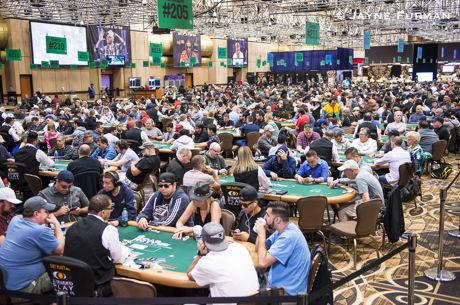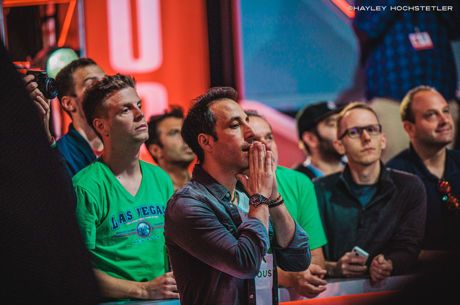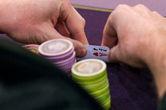The Biggest Mistake Small Stakes Tourney Players Make With 50-75 BBs
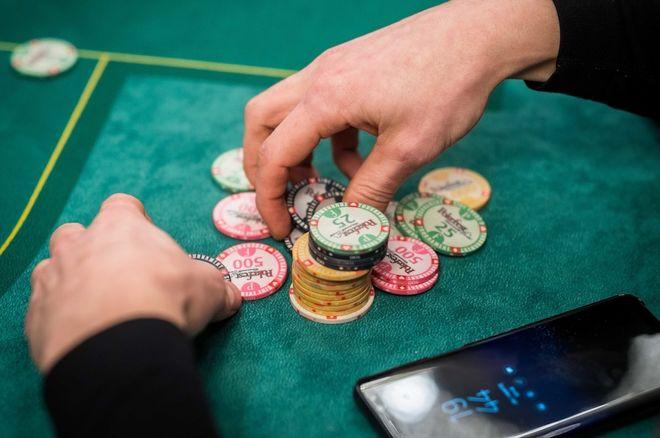
Last week, I discussed the biggest mistake small stakes tournament players make with 75-100 big blind stacks. In my opinion, they raise and call three bets with too wide of a range from that stack size. This often results in them losing chips and dropping down from their starting stack prematurely, and so today I want to discuss the biggest mistake players make with what are still somewhat deep stacks of 50-75 big blinds.
From this stack size, many players begin to realize they can no longer call those preflop three-bets as loosely as before. However, this does not change the fact that they are recreational players who want to have fun by seeing a lot of flops, so they adjust and start to limp-call before the flop with too wide of a range just as they were raise-calling too much previously.
Our response to this pattern shouldn't change. We should attack their limping range by making a raise and put them to the test with the weak hands they show up with on turns and rivers.
For example, let's say a player limps and calls from a 50 BB stack. As a limp-caller, this player has an even bigger problem than he did as a raise-caller. That's because his initial limp is capped, whereas his initial raise was not.
Sure, some players will limp-reraise with a hand like AxAx, but this happens a lot less frequently than raising and then four-betting with AxAx. This means we are attacking a weaker range which allows us to do such attacking with a weaker range than before.
I will raise his limp to 5 BBs with a hand like Qx10x-offsuit that I expect to be well ahead of his limping range. Just as before, I will then continuation bet about 5 BBs into a pot of around 10 BBs on the flop, fire roughly 10 BBs into 20 BBs on the turn, and shove the river on favorable runouts.
Once again this player will be put to a decision for his tournament life with a hand he never felt was worthy enough for a bet or raise at any point before the river. In this example, he will often fold to the shove and preserve his tournament life with his last 30 BBs. That makes this a great line to take as a bluff, but when we have a value hand, we may need to be a bit more gentle than we were before.
In the three-bet pot I discussed in the previous article in this series, the villain had 60 BBs behind on the river with 80 BBs in the middle. Calling a value bet of half the pot would have left him with 20 BBs behind. That's a decent-sized stack with plenty of fold equity for three-bet shoves in future hands, so players are often willing to fold and take that amount to the next hand.
In the case of this limped pot, our villain only has 30 BBs behind on a river with 40 BBs in the middle. Now if we bet half-pot, he will only be left with 10 BBs if he calls and loses. This could have the effect of making him fold more often to the river bet which is not good when we have a value hand.
For this reason, with value hands I will use a kinder, gentler bet size of around 10 or 15 BBs on the river to ensure I get called. Sometimes a bet of this size even gives the player the illusion of fold equity and induces him to shove over my bet as a bluff.
If the villain folds to the river bet, he will be left with a stack in the 25-50 BB range. I'm sure this won't come as a surprise, but in these small stakes tournaments I expect him to make mistakes with that stack size as well.
Next week, I will discuss the biggest one players make with stacks in this range. In fact, it may be the most important one because it happens so frequently and there is almost nothing an inexperienced player can do about it.


